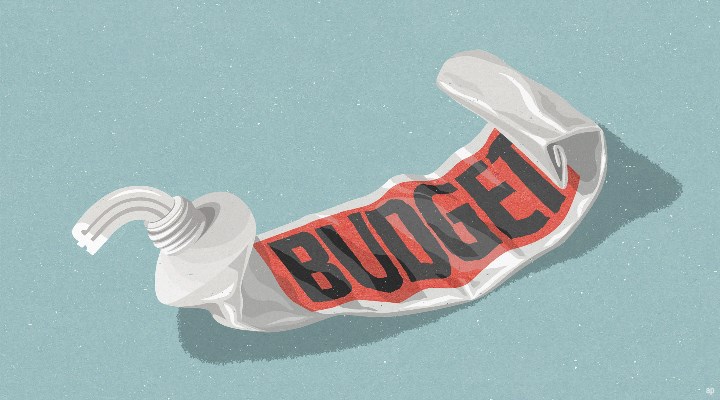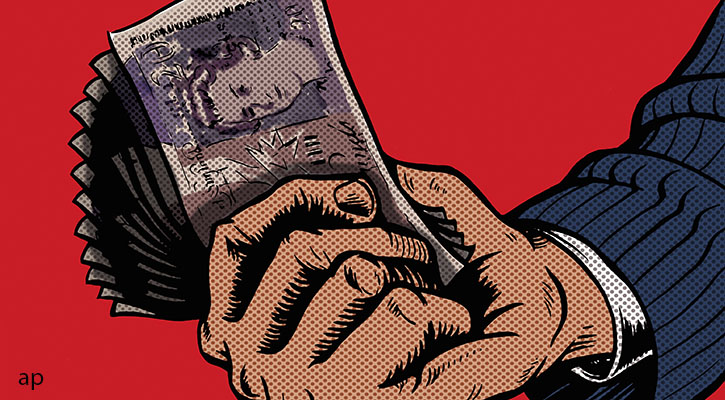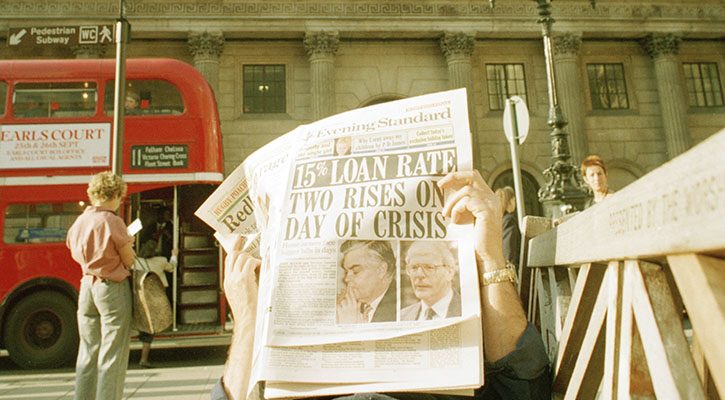
People (including this publication) have been using the term "record inflation" all year, and that is the overall response to the new Consumer Price Index (CPI) figures today – the highest since 1982.
The Office of National Statistics (ONS) this morning published more UK inflation numbers, revealing that, on a 12-month basis, CPI rose by 10.1%. This is up from 9.4% in from June.
Food prices drove the biggest change to inflation this month, and, with hikes in energy bills expected, the Bank of England does not expect this to be the peak. Announcing the interest rate hike earlier this month, Bank governor Andrew Bailey said "inflationary pressures have intensified significantly". He now expects it to hit 13% this year before it peaks.
The ripples from increasing inflation are also affecting UK wages, which are dropping at the fastest pace recorded. According to the ONS, total pay in July including bonuses fell 2.5% and regular pay fell 3.0%.
So what are industry professionals saying about the new figures? We’ve collected the responses below.
Mike Bell, global market strategist, J.P. Morgan Asset Management
"Rising inflation is really putting the squeeze on real wages, even with strong wage growth. And with the increase in energy bills coming in October, it’s only set to get worse.
"To avoid a large hit to consumers, significant further fiscal stimulus would be required beyond what is currently being proposed by either candidate to be the next prime minister.
"However, if enough stimulus is provided to largely offset the hit to consumers, then the Bank of England may well feel the need to continue raising interest rates. This could then pose a risk to consumption and the housing market via higher mortgage costs.
"So unless wage growth and hence underlying inflationary pressures moderate on their own without a rise in unemployment, UK policymakers are stuck between a rock and a hard place."
Les Cameron, savings expert, M&G Wealth
"The inflation measure is 'one size fits all' so depending on your age and lifestyle your reality may seem wholly different. This is particularly relevant to pensioners, who spend the largest proportion of time at home. Though next year’s state pension rise of 3.1% may appear helpful at first glance, it is significantly overshadowed by higher inflation rates. With sky-high energy bills as well as high food costs and petrol prices – which have risen by 39% between July 2021 and July 2022 according to data from the RAC – contributing to the cost-of-living crisis, many pensioners will struggle to maintain the same standard of living."
"Reviewing your finances to make sure you’re prepared for the future and better protected against further rises has never been more important and, for many, that will involve seeking some form of professional financial advice."
Rachel Winter, partner, Killik & Co
"Relying solely on monetary policy to fix the market leaves room for recession to join the party, potentially opening another can of economic turmoil. Government policy will need to focus on growth in order to avoid a long or severe recession.
"Much of the attention is focused on mitigating rising energy bills ahead of October, with many households reportedly unaware of how large the next increase in the energy price cap could be. While the Conservatives and Labour go head-to-head on how best to tackle the situation, households should look to inflation-proof their investments to make their long-term savings work for them."
Dan Howe, head of investment trusts, Janus Henderson
"It is essential in inflationary environments like this that families and individuals take action to protect their savings. Interest rates remain way below inflation, so our hard-earned and vitally-important savings are at risk of rapid erosion if left languishing in bank accounts. Investing those savings, particularly in equities, is one option for families to consider, given they can offer the potential for both capital and income growth, as well as a potential further income stream which would certainly be welcome as the cost-of-living crisis continues to pinch.
"Another thing for families to consider is that diversification is our friend in times of uncertainty. As the pressure of rising costs and looming recession begins to take its toll on specific industries, investing in collectives, for example, allows investors to spread their exposure across a range of sectors and regions rather than depending on a few single stock investments."
Jamie Niven, senior fund manager, Candriam
"Higher than expected inflation will drive home how stark a crisis the UK now faces. Headline CPI already above 10% months before the peak is expected should cause concern that the Bank’s forecasts could be revised up again. Given their indication of data dependency this will likely cause markets to reassess higher their potential hiking path.
"The Bank is stuck between a rock and a hard place as further tightening is almost certainly set to cause a deeper recession, with consumers squeezed even more. This may be offset somewhat by government handouts, which ironically could add to the inflation problem."
Sarah Pennells, consumer finance specialist, Royal London
"Already spending more to get less, many households have made significant cutbacks because of the rising cost of living, and there’s no sign that this is going to change.
"We’re due to find out in the next few days how much the energy price cap will rise by from 1 October, which will pile further pressure on the budgets for over 20 million households that aren’t on a fixed price tariff."
Michael Metcalfe, head of macro strategy, State Street Global Markets
"Double figure inflation in July is double trouble for the BoE. Lower petrol prices should help to alleviate pressures a little in August, although our online data from PriceStats suggests this could easily be offset by still robust rises in food price inflation seen so far in the month. All of this before the energy price cap rise in October suggests the peak in UK inflation may be even higher than the 13% forecast. The BoE now needs to move in 50bps clips at the very least at each meeting this year."
Ben Laidler, global markets strategist, eToro
"The chinks of light at the end of the inflation tunnel come from a slowdown in the underlying pace of prices growth, and early signs of an easing in global oil prices and a softening of the UK jobs market. Brent oil prices are under $95/barrel from a $120 high, whilst the UK jobs market only added 160,000 positions in the past three months, well under expectations."
Susannah Streeter, senior investment and markets analyst, Hargreaves Lansdown
"The ONS data indicates that inflation rose more sharply in the UK than other G7 nations like France, Germany, Italy and the US.
"In the US for now, retail sales appear to be holding up, which has buoyed Wall Street, but even shoppers in wealthier households are searching out bargains, with discounting helping push Walmart earnings above expectations. Investors have clung onto this as a sign of consumer resilience and an indicator that the US may avoid recession, but it could also be read as a sign that shoppers are battening down the hatches and preserving their dollars and cents for tougher times ahead.
“With energy making up such a big chunk of inflationary pressure, the drop off in the price of oil since the start of the month will come as some relief. The price of a barrel of Brent Crude has inched up marginally since the fall to below $93 yesterday, after a US inventory report showed a larger than expected decline of crude stockpiles. Hopes remain that there could be a deal reached with Iran to revive the nuclear accord and lift sanctions which could push another 2.5 million barrels per day onto the market and that’s helping keep prices lower. That deal isn’t likely to be imminent but concerns about a dramatic slowing in the global economy are likely to keep a lid on crude prices."
Chris Beauchamp, chief market analyst, IG Group
"The continued surge in inflation, combined with the fall in real wages, means that it seems increasingly unlikely that the UK will avoid a recession. Food prices have surged, intensifying the cost-of-living crisis, but hard-pressed consumers can expect little relief. While the BoE will have to keep up the hiking pace it has now established, the heightened likelihood of a UK recession means the pound will continue to flail against the US dollar thanks to the yawning economic gulf between the two."




























